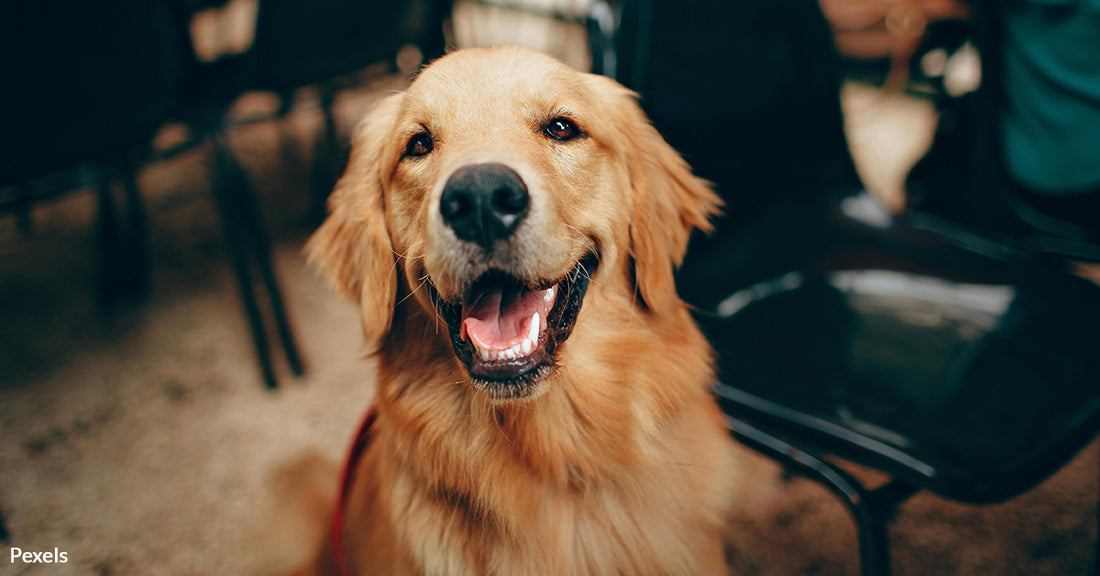Study Shows Dogs Learn Faster and Happier with Praise and Petting
Matthew Russell
Dogs are known for their loyalty and intelligence, making them excellent companions and trainable pets. Recent research highlights a significant finding in the realm of canine training: dogs learn more effectively when rewarded with praise and petting, rather than just treats.
This insight could revolutionize training practices, offering a more emotionally supportive approach that benefits both dogs and their owners.
 Photo: Pexels
Photo: Pexels
Dogs learn more effectively when rewarded with praise and petting.
The Study on Canine Learning
Researchers at Eötvös Loránd University (ELTE) conducted a study to explore how different types of rewards affect dogs' learning success. The study, published in the journal Scientific Reports, delved into the relationship between emotions, learning, and sleep in dogs.
The findings were clear: incorporating social reinforcement such as praise and petting enhances dogs’ performance in learning tasks. The research team, led by Dr. Vivien Reicher, developed a unique methodology.
Dogs were taught new command words for tricks they already knew, with training sessions divided into two styles. The "permissive" style included treats, praise, and petting, while the "controlling" style used only treats and involved scolding for unwanted behavior, Earth.com reports.
 Photo: Pexels
Photo: Pexels
Treats alone are not as effective as positive reinforcement in dog training.
Impact of Training Styles
The study found that dogs subjected to the controlling training style experienced greater stress. They sought their owners' proximity more and slept more after training. This aligns with previous research indicating that sleep plays a crucial role in processing emotions.
Interestingly, dogs trained permissively, with praise and petting, showed improved learning success, particularly after sleep, reports Phys.org. This suggests that positive emotional reinforcement not only reduces stress but also enhances memory consolidation.
Benefits of Positive Reinforcement
Positive reinforcement training involves rewarding desired behaviors to encourage repetition. This method is widely recognized as one of the most effective ways to shape or change a dog's behavior.
The Humane Society emphasizes the importance of timing in positive reinforcement. Rewards must be given immediately after the desired behavior to ensure the dog associates the reward with the correct action. Verbal praise, when combined with treats or petting, proves to be a powerful tool. However, verbal praise alone may not suffice.
Research by Erica Feuerbacher and Clive Wynne at the University of Florida and Arizona State University, respectively, found that dogs preferred petting over verbal praise alone, Psychology Today reports. When given the choice, dogs spent more time near people who petted them, indicating a higher reward value for physical affection.
 Photo: Pexels
Photo: Pexels
Praising dogs enhances their learning and emotional well-being.
Practical Implications for Dog Owners
For dog owners and trainers, these findings underscore the importance of incorporating praise and petting into training routines. According to the Humane Society, while treats are effective, combining them with social reinforcement can lead to better learning outcomes and a stronger bond between the dog and its owner. Consistency is key. Everyone in the household should use the same cues and reward methods to avoid confusing the dog.
The use of positive reinforcement also has broader implications for animal welfare. Dogs trained with kindness and patience are less likely to develop behavioral issues and more likely to thrive in their environments. This approach aligns with modern training philosophies that prioritize the well-being of the animal over rigid obedience.
 Photo: Pexels
Photo: Pexels
Positive reinforcement makes training sessions more enjoyable for dogs.
By recognizing and harnessing the power of positive reinforcement, dog owners can foster a more harmonious and effective training experience. This method not only enhances learning but also strengthens the emotional bond between dogs and their human companions, leading to happier, healthier pets.
